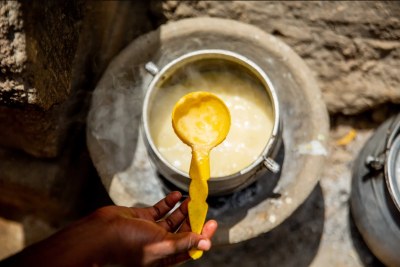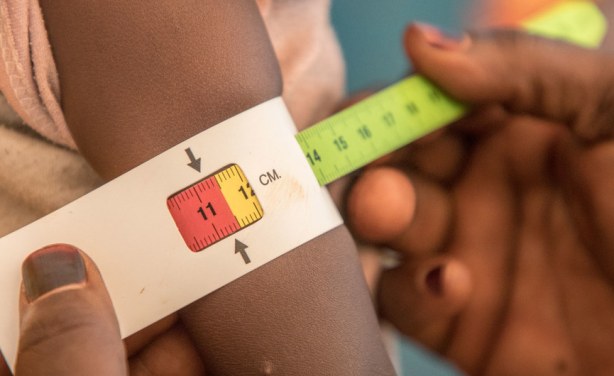-
Nigeria: Malnutrition Among Children Is Rife - What Must Be Done
The Conversation Africa, 22 July 2021
Malnutrition is one of world's major public health and development concerns. In Nigeria, the situation is dire. Currently, UNICEF says 5 in 10 children under five years old suffer… Read more »
-
Nigeria: Despite Govt Actions, 4,000 Children Died From Malnutrition in Jigawa
Premium Times, 13 July 2021
According to official figures, 3, 944 children under the age of five years died between 2010 and 2020 at public centres for the treatment of acute malnutrition in children. Read more »
-
Nigeria: Experts Advocate Food Fortification to Stem Malnutrition
This Day, 8 July 2021
Experts in food, nutrition and health, have identified micronutrients fortification of commonly consumed foods as the key to ending malnutrition. Read more »
-
Nigeria: 4,000 Children Orphaned By Covid-19 in 16 Months - World Bank
This Day, 22 July 2021
An estimated 4,000 Nigerian children were orphaned by the COVID-19 pandemic between March 2020 and July 2021, the World Bank has revealed in a new report. Read more »
-
Nigeria: Acute Malnutrition Hits 7,271 Children in Katsina
This Day, 3 June 2021
The Executive Secretary of the Katsina State Primary Healthcare Development Agency, Dr Shamsudeen Yahaya, Thursday said 7,271 out of 1.2 million children in the state are suffering… Read more »
-
Nigeria: Nigerians Need More Than Food From G7 Nations
Vanguard, 15 July 2021
NIGERIANS are grateful that the G7 group of nations, an inter-governmental organisation made up of the world's largest developed economies - France, Germany, Italy, Japan, the… Read more »
How Can Govt Help End Malnutrition Among Nigerian Children?
Malnutrition is one of the world's major public health and development concerns. In Nigeria, the situation is dire. Currently, UNICEF says 5 in 10 children under five years old suffer the effects of being malnourished. This has an overarching impact on the lives, future, and productivity of Nigerian children, writes Ogechi Ekeanyanwu for The Conversation Africa.
Prior to the emergence of Covid-19, approximately four in 10 Nigerians were living in extreme poverty based purely on monetary measures. Post-Covid-19, the cost of living has continued to rise, thereby plunging Nigerians deeper into poverty.
In terms of severity - compared to global rates of acute malnutrition - four zones are worst affected: Central Yobe, Northern Yobe, Northern Borno, and East Borno. The levels of malnutrition is worsened by the ongoing conflict in these regions, food insecurity, poor water, and sanitation conditions, high morbidity, and poor infant care.
InFocus
-
The United Nations Children's Fund has said that at least 88,000 children with Severe Acute Malnutrition are at risk of death in north-east region of the country, as they remained ... Read more »
-
Insecurity and conflict have plagued north-east Nigeria for almost 12 years, causing millions of people to feel the pain of hunger. Covid-19 has only exacerbated the ... Read more »
-
Nigeria, like many low and middle-income countries, accounts for some of the highest burdens of maternal deaths. Nigeria accounts for about 20% of global maternal deaths, largely ... Read more »





